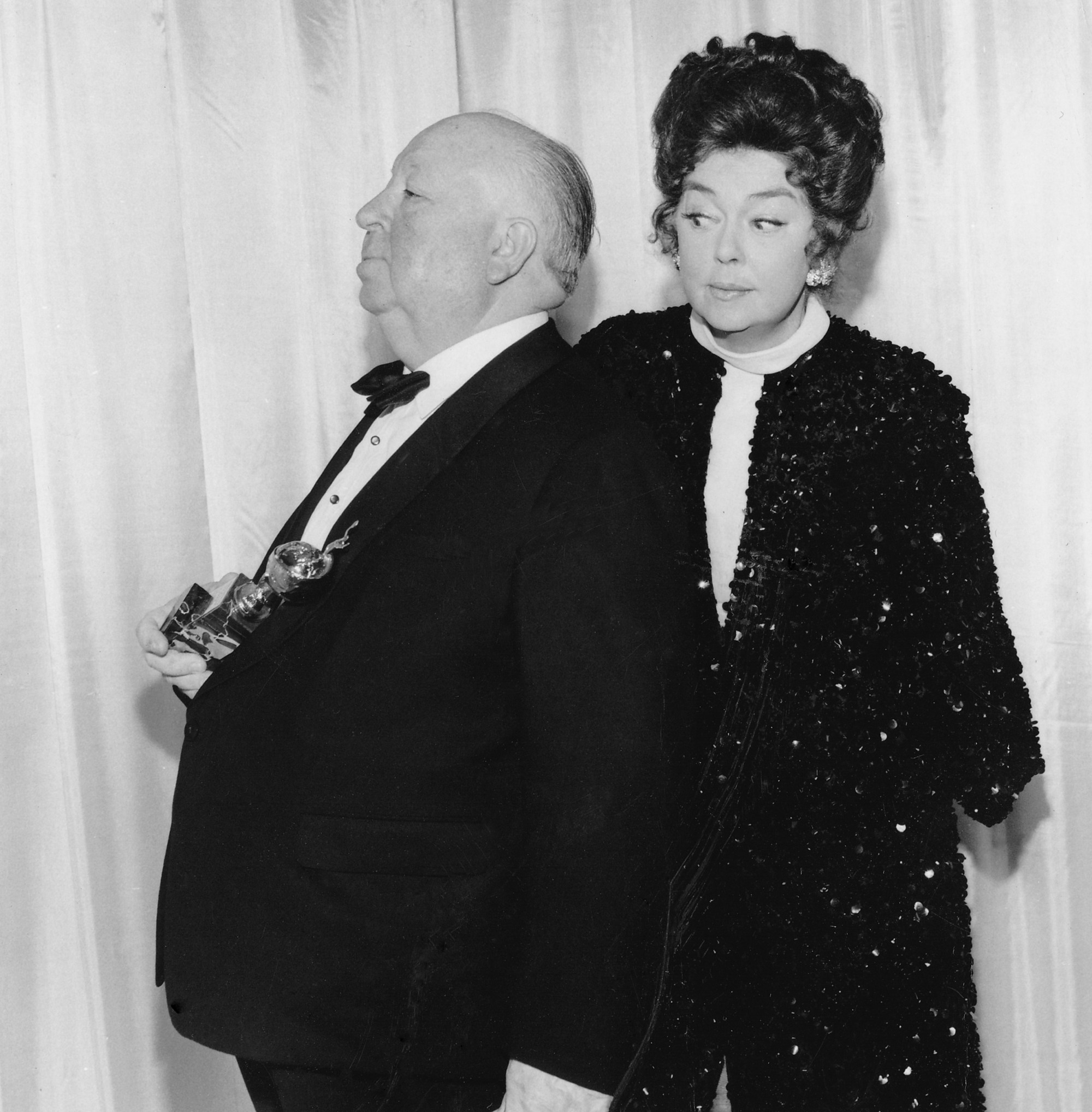
- Cecil B. DeMille
Ready for My deMille: Profiles in Excellence – Alfred Hitchcock, 1972
"Arial",sans-serif;color:#550016″> was presented to its namesake visionary director, the Hollywood Foreign Press Association has awarded its most prestigious prize 66 times. From Walt Disney to Bette Davis, Elizabeth Taylor to Steven Spielberg and 62 others, the deMille has gone to luminaries – actors, directors, producers – who have left an indelible mark on Hollywood. Sometimes mistaken with a career achievement award, per HFPA statute, the deMille is more precisely bestowed for “outstanding contributions to the world of entertainment”. In this series, HFPA cognoscente and former president Philip Berk profiles deMille laureates through the years.
"Times New Roman";color:#222222″>Part One
Alfred Hitchcock. Besides the numerous biographies that have been written about him, he himself submitted to exhaustive interviews with directors Francois Truffaut and Peter Bogdanovich, which were recorded and later published, conversations in which he painstakingly dissected the over 50 feature films he made.
Samuel Goldwyn. He made a number of exploratory visits, the last at his own expense. Even though he valued his independence as a filmmaker he valued his worth much more and made sure his Hollywood salary should be commensurate with what he was paid in England, where he was always the highest-paid director.
Laurence Olivier and Joan Fontaine, the latter incidentally Hitch’s second choice for the role, his first being the insipid leading lady from two of his worst films, Nova Pilbeam.
Clark Gable were among his newly acquired friends) was not his forte, but the second Foreign Correspondent was right up his alley, and working with producer Walter Wanger, he was afforded the independence he enjoyed in England but with one disadvantage, budget constraints; so instead of Gary Cooper he had to make do with Joel McCrea, and instead of Lombard he had to settle for Laraine Day. But even today Foreign Correspondent holds up well.
Cary Grant in the lead – he would have liked Grant as his leading man for every one of his films, and when it didn’t happen it was the actor who invariably had turned him down – Grant didn’t care for his costar, Joan Fontaine, and made his dislike for her quite obvious. The other problem for Hitch was the screenplay. A legion of screenwriters – he invariably used two or three – couldn’t come up with an ending. And even after its release, no one was happy with the finished product – except the public, who made the film a surprise box office smash.
Robert Donat, who he had discovered years back and who had just won the Oscar for playing Goodbye Mr. Chips. Audiences and critics welcomed the movie and even today the sequence involving the Statue of Liberty is considered a masterclass of film editing.
Darryl F. Zanuck was in charge of the studio, but as Lieutenant Col. Zanuck, he had joined the war effort, and William Goetz was running the studio in his absence. When Zanuck returned unexpectedly, he was not happy that the film had been greenlighted, but he had to eat crow when it opened to smashing box office numbers. Unfortunately, the following week it became a victim of controversy – the war was still waging – when eminent New York critics accused the film of being pro-Nazi. This particularly stung because prior to making Lifeboat he had taken time off to make two short propaganda films for the British government to counter criticism that he had deserted England in its time of need. While there he had experienced food rationing and nightly bombings, which left a lasting impression.
Ingrid Bergman, Gregory Peck, Salvador Dali. How could it miss! And it was a huge hit, even though Hitchcock never thought much of it, but it offered him other benefits, for one he was on Selznick’s payroll for all ten weeks preparation which afforded him opportunities to plan his next production venture, teaming up with his British Lion producer and friend Sidney Bernstein. The two of them envisioned a company named Transatlantic Pictures which would produce films without interference. For Spellbound Hitch had relished the opportunity to work with his favorite collaborator writer Ben Hecht. It was the first film to tackle the subject of psychiatry and Hitch had grandiose ideas of hiring Salvador Dali to create four paintings that would form the basis of four dream sequences. During this time Selznick was preoccupied with guiding the career of his new discovery and eventual wife Jennifer Jones, which allowed Hitchcock the freedom of choosing his cast. Selznick contract player Ingrid Bergman was a given, and Hitch wanted Cary Grant to play opposite her, but when he hemmed and hawed the role went to Selznick’s other contract player Gregory Peck.

